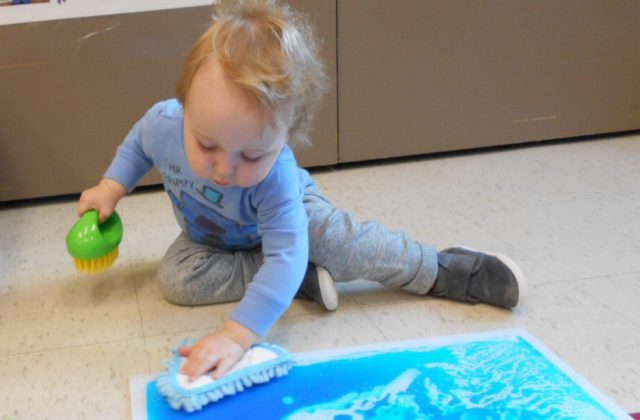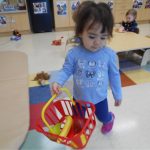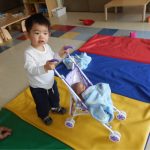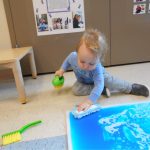Dramatic play is a part of every child’s growth and development. It often occurs in the form of imitation, as most children do this in their process of adaptation. Thus, allowing them the opportunity to develop a sense of self and receptive language skills.
Materials
A variety of props can be used to offer the children this opportunity such as:
- Baby dolls and strollers
- Shopping cart and baskets or bags
- Brooms and dusters
Observations and Findings
As children experience dramatic play, they develop skills of imitation and symbolic thought. For example, when a child is in a stroller and pushed around by an adult, they understand that the stroller is a means of transportation. When given a toy stroller, they can then connect and reference what they have seen other adults do and what they have experienced themselves.
Dramatic play also allows children to gain a sense of self. For example, a child sees the adults cleaning and picking up after a spill. When given the opportunity to clean and pick up after themselves, even through dramatic play, children can feel a sense of accomplishment and independence in being able to do things by themselves.
Through dramatic play, children are able to practice and develop their receptive language skills. They can practice their descriptive words and create a foundation for future story telling. For instance, during dramatic play, the child reenacts going shopping. They can exercise their ability to label and name objects that they have “purchased”.





